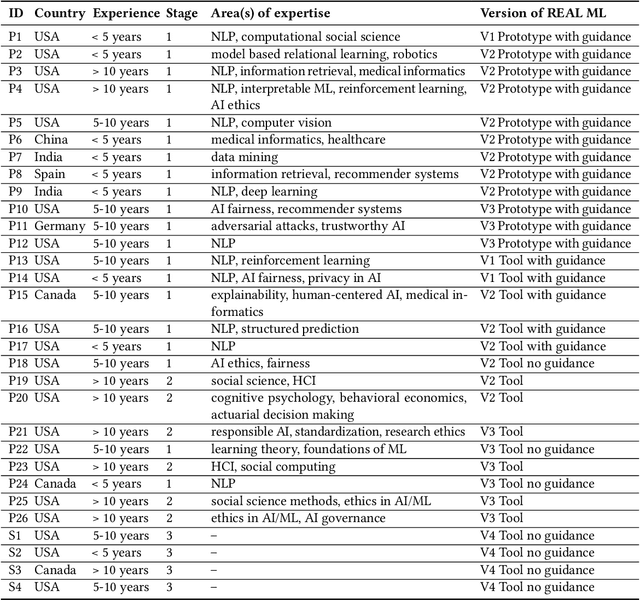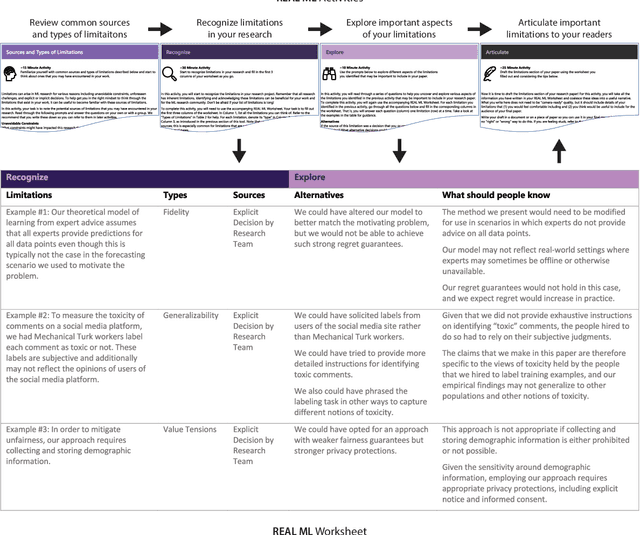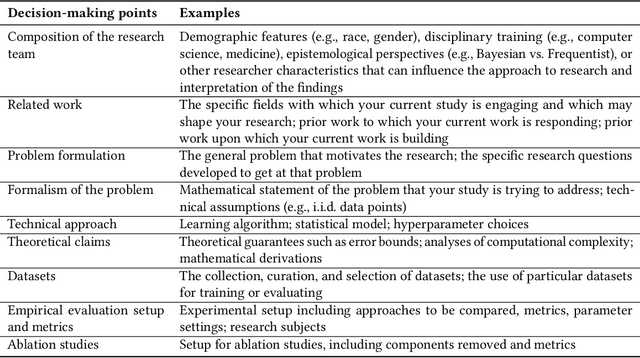Jessie J. Smith
REAL ML: Recognizing, Exploring, and Articulating Limitations of Machine Learning Research
May 05, 2022



Abstract:Transparency around limitations can improve the scientific rigor of research, help ensure appropriate interpretation of research findings, and make research claims more credible. Despite these benefits, the machine learning (ML) research community lacks well-developed norms around disclosing and discussing limitations. To address this gap, we conduct an iterative design process with 30 ML and ML-adjacent researchers to develop and test REAL ML, a set of guided activities to help ML researchers recognize, explore, and articulate the limitations of their research. Using a three-stage interview and survey study, we identify ML researchers' perceptions of limitations, as well as the challenges they face when recognizing, exploring, and articulating limitations. We develop REAL ML to address some of these practical challenges, and highlight additional cultural challenges that will require broader shifts in community norms to address. We hope our study and REAL ML help move the ML research community toward more active and appropriate engagement with limitations.
Fairness and Transparency in Recommendation: The Users' Perspective
Mar 16, 2021Abstract:Though recommender systems are defined by personalization, recent work has shown the importance of additional, beyond-accuracy objectives, such as fairness. Because users often expect their recommendations to be purely personalized, these new algorithmic objectives must be communicated transparently in a fairness-aware recommender system. While explanation has a long history in recommender systems research, there has been little work that attempts to explain systems that use a fairness objective. Even though the previous work in other branches of AI has explored the use of explanations as a tool to increase fairness, this work has not been focused on recommendation. Here, we consider user perspectives of fairness-aware recommender systems and techniques for enhancing their transparency. We describe the results of an exploratory interview study that investigates user perceptions of fairness, recommender systems, and fairness-aware objectives. We propose three features -- informed by the needs of our participants -- that could improve user understanding of and trust in fairness-aware recommender systems.
 Add to Chrome
Add to Chrome Add to Firefox
Add to Firefox Add to Edge
Add to Edge